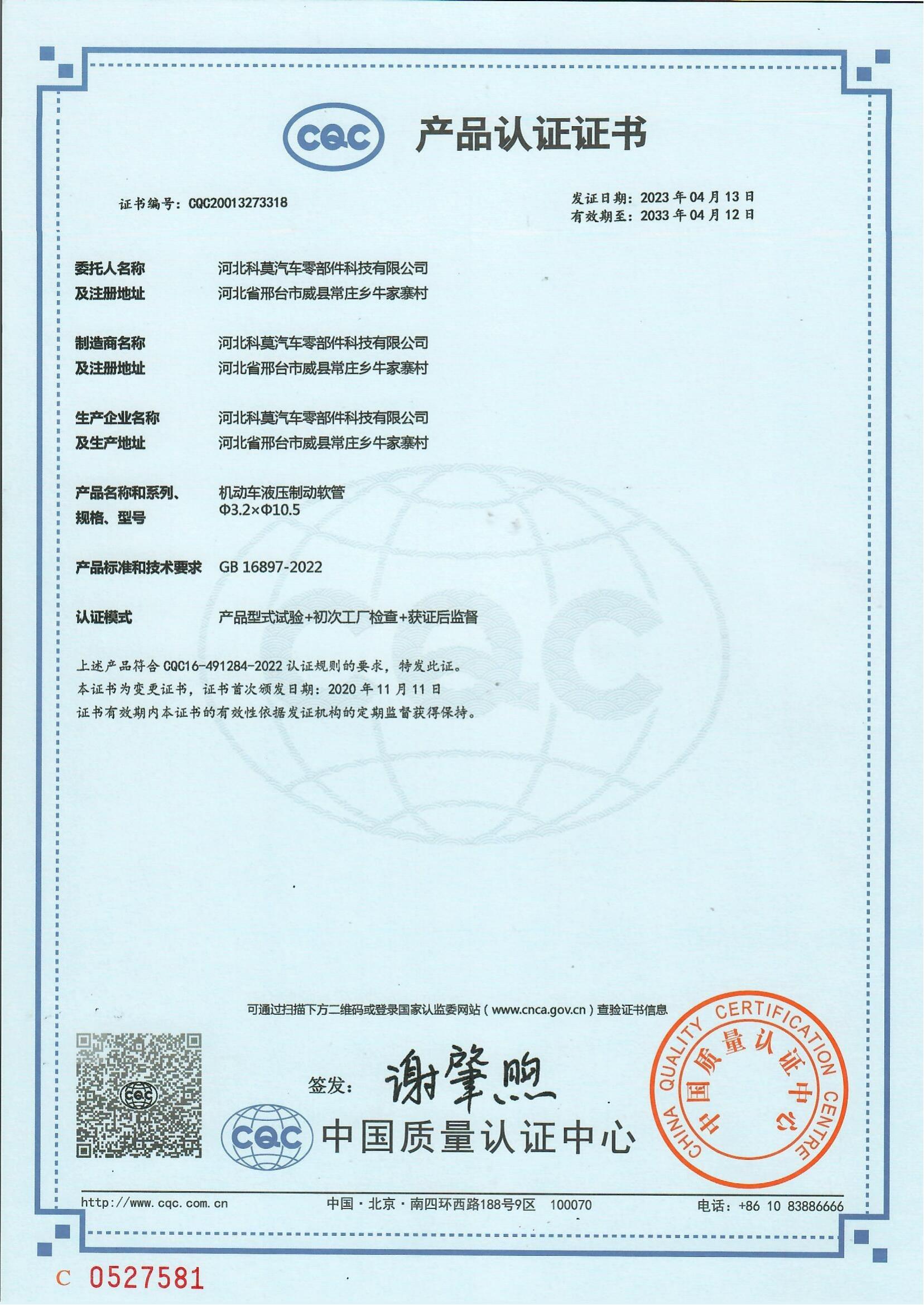injector fuel pipe
نويابىر . 11, 2024 20:35 Back to list
injector fuel pipe
Understanding the Injector Fuel Pipe A Key Component in Modern Engines
In the intricate world of automotive engineering, every component plays a critical role in ensuring optimal performance and efficiency. Among these components, the injector fuel pipe stands out as a vital element that facilitates the delivery of fuel to the engine's combustion chambers. Understanding its function, design, and importance can shed light on the overall mechanics of internal combustion engines.
What is the Injector Fuel Pipe?
The injector fuel pipe, often referred to simply as the fuel rail in modern vehicles, is the component responsible for delivering fuel from the fuel tank to the fuel injectors. The fuel injectors are pivotal in ensuring that the right amount of fuel is injected into the engine cylinders at precisely the right time. The injector fuel pipe serves as a conduit, ensuring that fuel flows from the high-pressure fuel pump to the injectors with minimal resistance and maximum efficiency.
Design and Materials
Injector fuel pipes are typically constructed from high-pressure-resistant materials like stainless steel or high-grade aluminum. These materials are chosen for their durability and ability to withstand the extreme temperatures and pressures experienced within the engine compartment. Additionally, these pipes are often coated or treated to resist corrosion, as exposure to fuel and other elements can lead to degradation over time.
The design of the injector fuel pipe usually includes multiple outlet ports for each fuel injector, allowing for precise fuel distribution. The layout must consider various factors, including accessibility for maintenance, compatibility with different vehicle designs, and sufficient routing to prevent contact with heat sources or other moving parts.
Functionality
injector fuel pipe

The primary function of the injector fuel pipe is to maintain a consistent and regulated supply of fuel to the fuel injectors. When the engine is running, the fuel pump generates high pressure that forces fuel into the injector fuel pipe. This pressure must be carefully managed because too much can lead to injector flooding, while too little can cause misfiring or incomplete combustion.
Moreover, modern engines are equipped with advanced electronic control units (ECUs) that monitor various parameters, including engine load and temperature. The ECU communicates with the fuel system to adjust the fuel pressure dynamically, ensuring that the injector fuel pipe delivers the optimal amount of fuel to the injectors based on real-time conditions.
Importance in Engine Performance
A well-functioning injector fuel pipe is crucial for engine performance, fuel efficiency, and emissions control. Blockages or leaks in the injector fuel pipe can lead to several issues, including poor engine performance, increased fuel consumption, and elevated emissions. Furthermore, if fuel isn't properly delivered, it can result in engine knocking, rough idling, or stalling, leading to expensive repairs and decreased reliability.
Additionally, as automotive technology evolves, the role of the injector fuel pipe is becoming even more significant. With the rise of turbocharged engines, direct fuel injection systems, and alternative fuels, the demands placed on fuel delivery systems have increased. Injector fuel pipes must now accommodate higher pressures and different fuel types, requiring continuous innovation in design and materials.
Maintenance and Troubleshooting
Regular maintenance of the injector fuel pipe is essential for ensuring long-term engine health. This includes regular inspections for signs of wear, corrosion, or leaks. If any issues are identified, replacing the fuel pipe or associated components is crucial to prevent more extensive damage to the engine.
In conclusion, the injector fuel pipe may be a small component in the grand scheme of automotive design, but its importance cannot be overstated. It plays a critical role in fuel delivery, impacting engine performance, efficiency, and reliability. Understanding the function and maintenance of this essential part can help vehicle owners ensure their engines operate smoothly for years to come.
